This article originally appeared in The Radical Issue, no. 351, Spring 2018.
Cardi B is sat bolt upright on a small sofa. In front of her is a table spilling over with Haribo, an unopened bottle of Moët, an open can of orange Fanta, an actual orange and an apple. She’s backstage at Alexandra Palace, on a cold night in deepest, darkest, northest London.
Cardi, five foot two inches and tremendously tattooed, is busy extolling the merits of Chick-fil-A over Nando’s – Nando’s loses, badly – to an assorted throng of managers, publicists, stylists, security guards, dancers and a couple of “London friends”. She’s wearing knee-high boots, a sailor cap and a diamond-encrusted blue and white bodice that barely covers her crotch. ”I enjoy my vagina,” she notes at one point. She punctuates most sentences – serious and otherwise – with her trademark skkkkrrrrr’s and krrrrrrr’s and numerous and glorious facial contortions and expressions. Cardi B is exactly — exactly — as you would expect her to be.
She’s unfiltered. She doesn’t give a fuck. She’ll talk rabidly and unselfconsciously about cunnilingus and stripping, gang violence and vaginas. Much has been written about her willingness to be filthily fantastic company both IRL and on social media, but there’s more to her chat than tits and tatts.
She’s super-smart, bitingly funny, sharp as a tack. We talk about her triple major at college — French, western civilisation and American politics. “I thought I could be a history teacher one day, but what turned me off was when they told me what you get paid. I didn’t like that,” she decides, offering an arched eyebrow. “And you know what else? A teacher also told me my English is not that good. She told me, ‘You need to speak a certain way.’” Cardi doesn’t speak a certain way, a quick glance at her Instagram can tell you that: she’s more Rosie Perez than Rosie Perez, a round-the-way homegirl snapping gum and drilling her boogie-down Bronx accent into its most intense recesses. “They said the same when I got famous. But I feel like I speak English properly,” she continues, her lips pursing. “I know what’s going on. I understand what’s happening on CNN. A lot of people don’t understand, but I understand.”
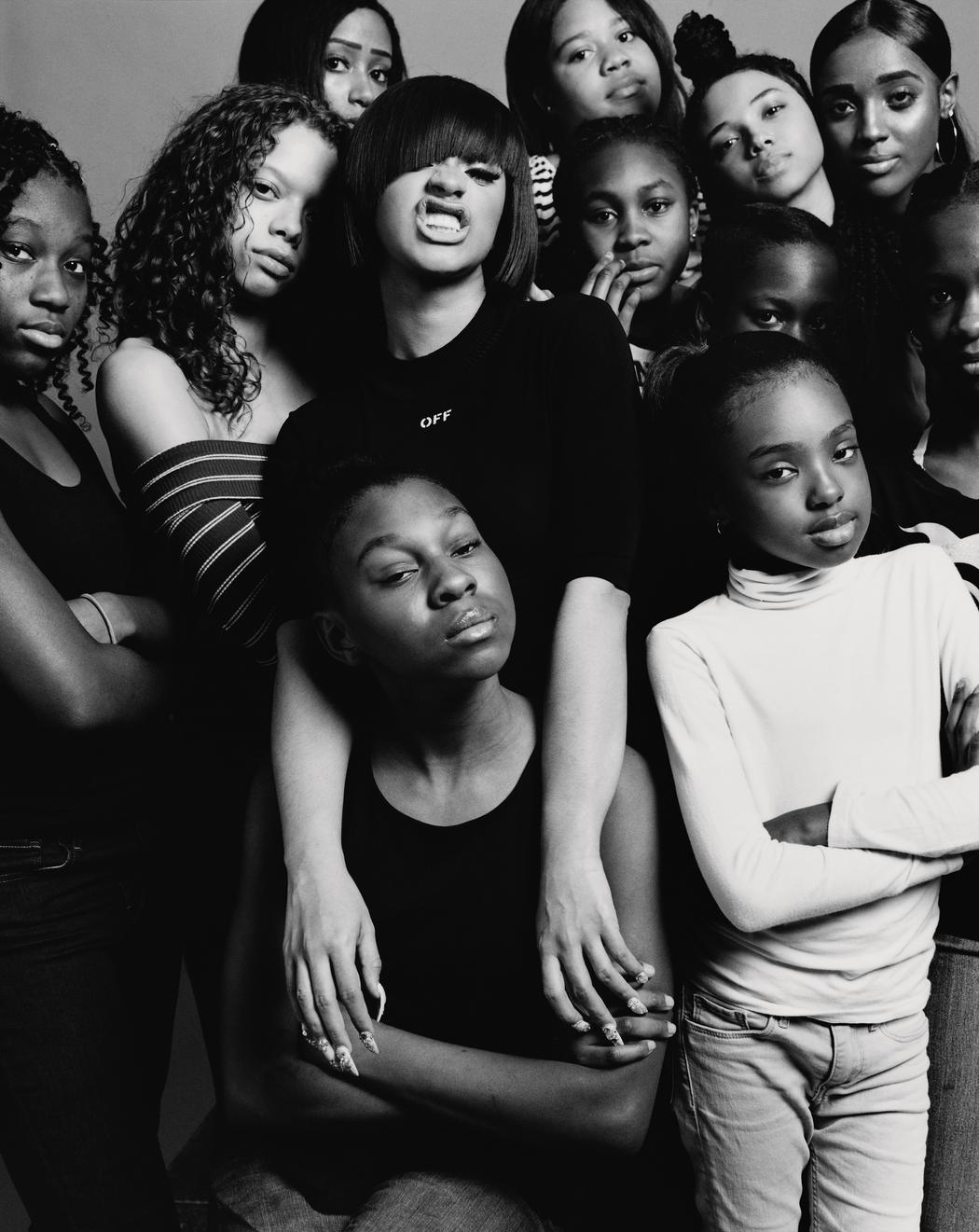
Cardi’s arrival into the hip-hop narrative comes during a time of great unrest, a time of turbulence. A time when a president can still be a president even when it’s known he likes to grab women by the pussy. When a president can side with a group of far right white nationalists and get away with it. When a president can almost instigate nuclear war just by typing 140 characters into Twitter.
But while this might be the time of Trump, environmental disasters and young black kids getting shot by the police, this is also a time of #MeToo, of Colin Kaepernick, of #TimesUp, of #BlackLivesMatter, protests, taking the knee and standing up for what’s right. Marches and memoirs. The activists are getting radical and fighting back.
Cardi B might not appear to be a particularly potent figure of protest, but her very existence is a fuck you to white male power. Her success as a young Trinidadian-Dominican-American, a former stripper and a one-time reality TV star isn’t implausible in itself (Hi Kardashians!), but that Cardi has achieved this, as a female rapper without a record label or a sex tape and minus a male co-sign — vital in hip-hop (just ask Nicki, Kim, Foxy, Trina, Eve, etc) — is a movement in and of itself. Cardi is the first woman since Lauryn Hill to get a solo number one unaccompanied by anyone (read: a male co-star) and with a three-week reign she sat at the top spot longer than Ms. Hill. And knocked off Taylor Swift while she was at it.
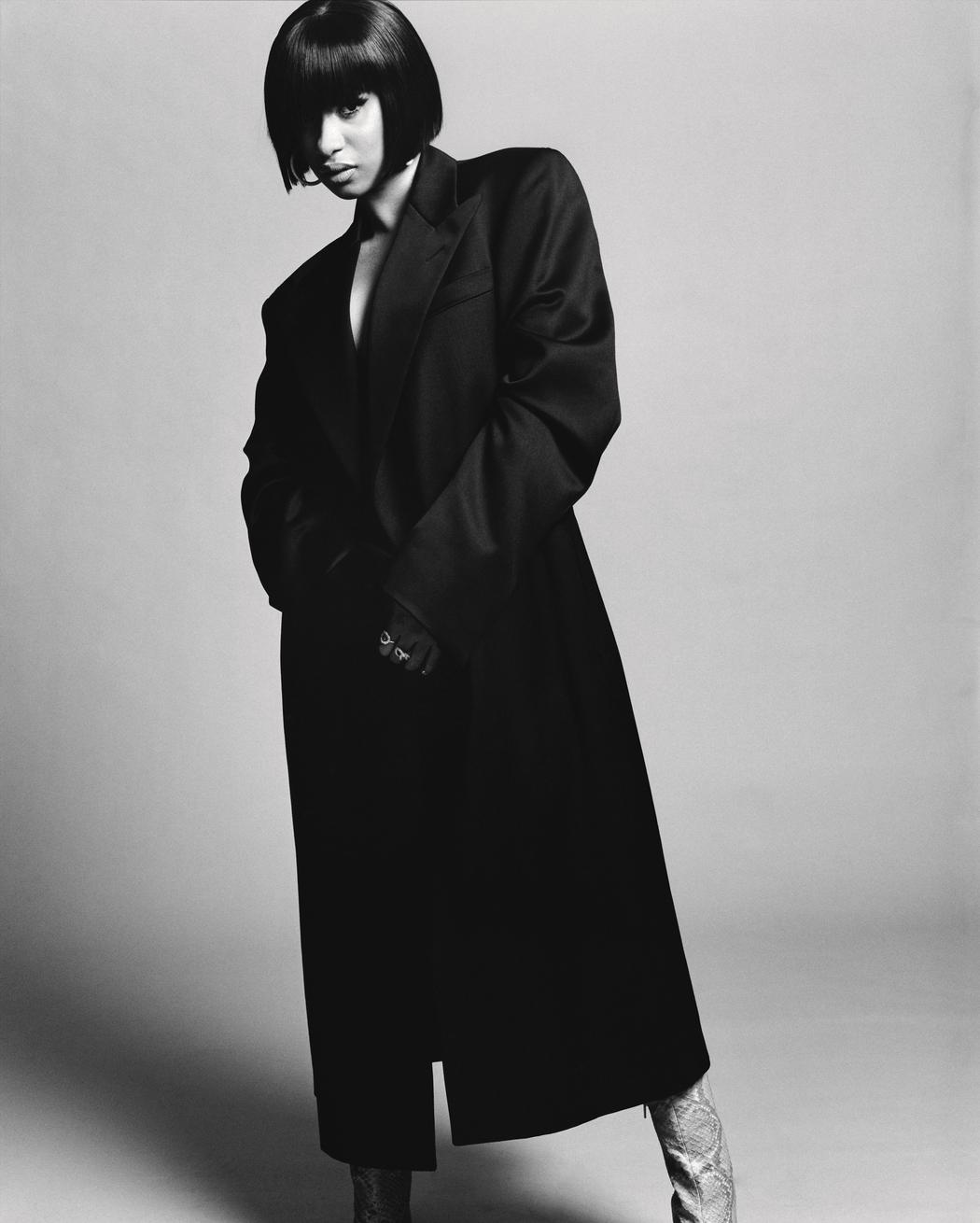
Bodak Yellow was the soundtrack of 2017, a behemoth of bloody bottomed shoes and money moves. Here is a young, Latinx, working-class one-time stripper at number one in the charts with 25 million followers hanging on to every video, tweet and picture on social media. “When I got to number one,” she says. “I didn’t even know that no woman has done that since 1998. I didn’t know how important it was for the community or the minorities.” Her success, and that of her peers, including her fiancée’s group, Migos, is not only empowering to other young people of colour, it’s threatening to those who are not. She is — they are — disrupting things and disrupting things is really, really powerful.
“Being a feminist is real simple; it’s that a woman can do things the same as a man. I can finesse. I can hustle. We have the same freedom. I was in top of the charts. I’m a woman and I did that.”
“Of course the success of people like me scares people, that’s why they belittle us,” she continues. “If you’re a little scrawny man raised in a trailer in Alabama somewhere, of course you’re scared right now. That’s why they own guns! They’re scared of the intelligence of the minority. They scared of that shit. We have broken these rules a lot of times. In America, I always look at the charts. Hip-hop is always there. We are controlling the music industry. We control the fashion world,” she says, “I don’t give a fuck if the fashion comes from a runway or if a Caucasian woman is walking it, once a coloured person wears something, that’s when everybody wants to wear it. We always influence. When you see the Olympics, who always wins? Coloured folks. We win everything. We are a big influence and people want to take that shit away. People like Donald Trump, they’re always going to make us feel like we’re less. But it’s okay, because a bitch like me knows the truth. It don’t matter if the government and the Republicans try to make us feel like we’re not, cos we is. I know the truth.” What is the truth? “That we run the shit! We influence. We run everything.”
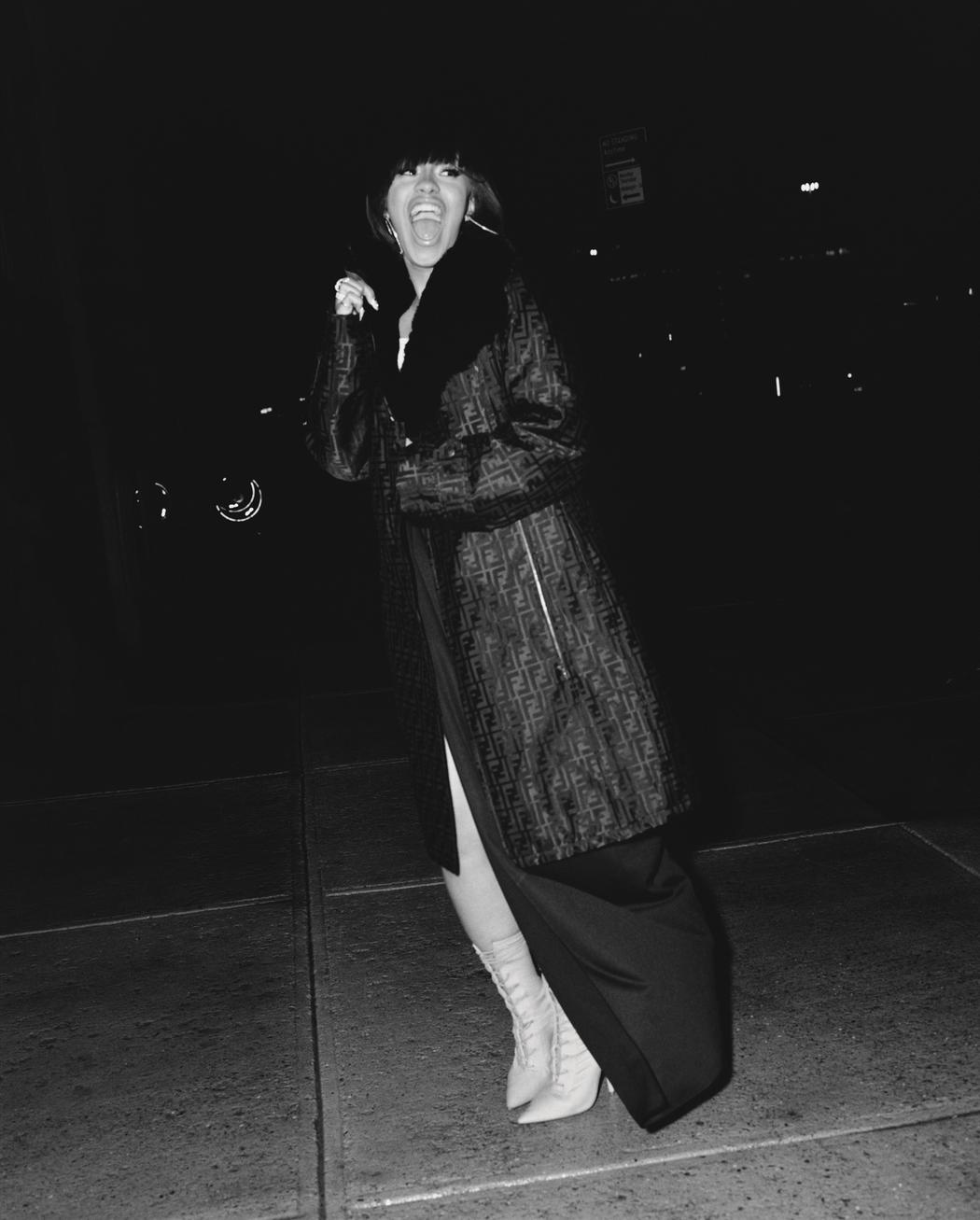
Cardi B’s politics — her feminism in particular — isn’t the safe, familiar, secure expression of middle-class, predominantly white liberalism. She says “coloured” and “n****” and “bitch”. Cardi’s politics are confrontational and confronting. It’s not politically correct. It makes you uncomfortable, because Cardi’s politics emanate from a place of rage, injustice, poverty and real, true lived experience. It’s not always pretty, but it’s hers; her feminism, her activism. “Being a feminist is such a great thing and some people feel like someone like me can’t be as great as that,” she begins. “But then some people are smart but they don’t have no common sense.” Lips pout, eyebrows rise. “They think feminism is great and only a woman that can speak properly, that has a degree, who is a boss, a businessperson… they think only Michelle Obama can be a feminist. But being a feminist is real simple; it’s that a woman can do things the same as a man. I’m equal to a n****. Anything a man can do, I can do. I can finesse, I can hustle. We have the same freedom. I was top of the charts. I’m a woman and I did that. I do feel equal to a man.”
Cardi B was born in the wilds of Washington Heights before moving to Highbridge in the Bronx. “There’s no hood hooder than my hood,” she says proudly. “I had to toughen up when we moved to the Bronx in the sixth grade, because if you don’t then people will pick on you.” She started her new school with a very specific look, one that clashed with her new peers. “I used to wear pink skirts, jackets with fur on the sleeves… I used to dress like That’s So Raven. Everybody in my school used to look at me like I was crazy because people dressed more hood; Pepe jeans, Timberland boots, a lot of Jordans. It really made me sad,” she pouts again. “I was getting picked on for the way I dressed. I got jumped in the sixth grade real bad and after that, it changed me. It really, really did change me. In middle school and high school, it doesn’t matter how tough you are, or it doesn’t matter if you stand for shit, you ain’t nobody if you ain’t in a gang. People influence you and tell you that you should join this or you should join that. Then again, it’s a great experience. I wouldn’t be able to rap about the things that I rap about now [if I hadn’t grown up there].” Her previous gang affiliation might be problematic but she is, to paraphrase Oprah, speaking her truth. A precocious kid, Cardi went to Renaissance High School for Musical Theater and Technology and later enrolled at college in Manhattan, but dropped out to make ends meet by working as a cashier in an Amish deli. It was the deli owner who advised the then 18-year-old that stripping was where she could make serious cash, enough to look after her little sister, Hennessey, her cab driving father and single parent mother.
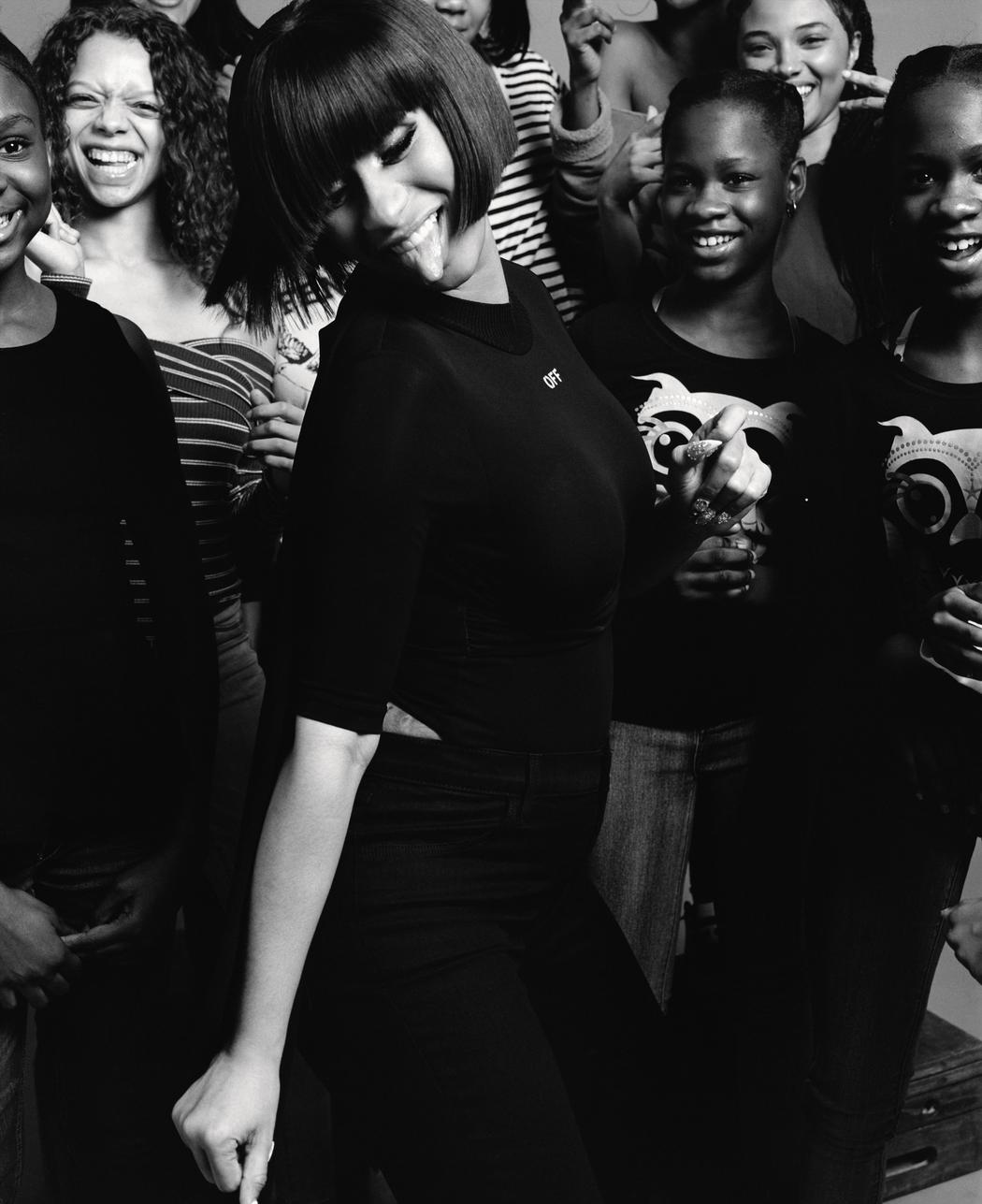
“The first time I stripped I was really embarrassed,” Cardi says today. “I felt like I could hear my parents in the back of my mind. When I gave my first lap-dance all the girls were looking at me to see if I was doing something wrong cos I ain’t know how to do a lap-dance. But I felt so disgusted. They can’t touch you in your private parts and they’re not supposed to touch you at all, but sometimes a man would caress me on my arm and I would hear them breathe so heavy in my ear. It just disgusted me.” She told her then-boyfriend that she didn’t want to do it anymore, but neither of them saw any other way to make money, so she continued. “After a while I didn’t even care anymore. I was seeing money that I feel like I would’ve never seen ever. At first I started off making $200 or $300, sometimes not making money at all because you’ve gotta pay your house fee and my house fees were very expensive. But after I got good at it there was nights where I would leave with $2,000 or $3,000. When I was 21 I had $20,000 saved up. When I was 22 I already had $35,000 saved — in singles,” she cackles.
But the allure of stashing singles in her wardrobe began to fade and she became a reality TV star instead, appearing in VH1’s Love & Hip Hop: New York where she proved to be a popular character. As with stripping, Cardi intuited that all good things must come to an end, and as soon as her rap career started to see some success, she jumped ship. It was on social media that things began to snowball, as she utilised her growing following to entertain fans with a mix of parody and pathos, dispensing advice as easily as she admitted to various plastic surgeries. Her instagram is still packed with short, sharp updates — from losing the loser in her life (the boyfriend got ditched) and getting her teeth fixed and bum lifted, to dating Migos rapper Offset. When the pair got engaged they did it publicly, onstage in front of thousands of fans before taking it straight to the ‘gram where their relationship is played out in front of millions. But privately there appears to be a deep respect and love for one another. “We’re so different from each other. I think he likes that. We’re both hood, but he’s Atlanta hood, down south hood, and I’m New York hood.” She doesn’t know what the wedding will look like yet, but “it’s going to be gangster. I don’t want it to be a boring wedding reception, cos me? I’m going to be doing the splits.” Of course she is. “I want that shit to be fun.”
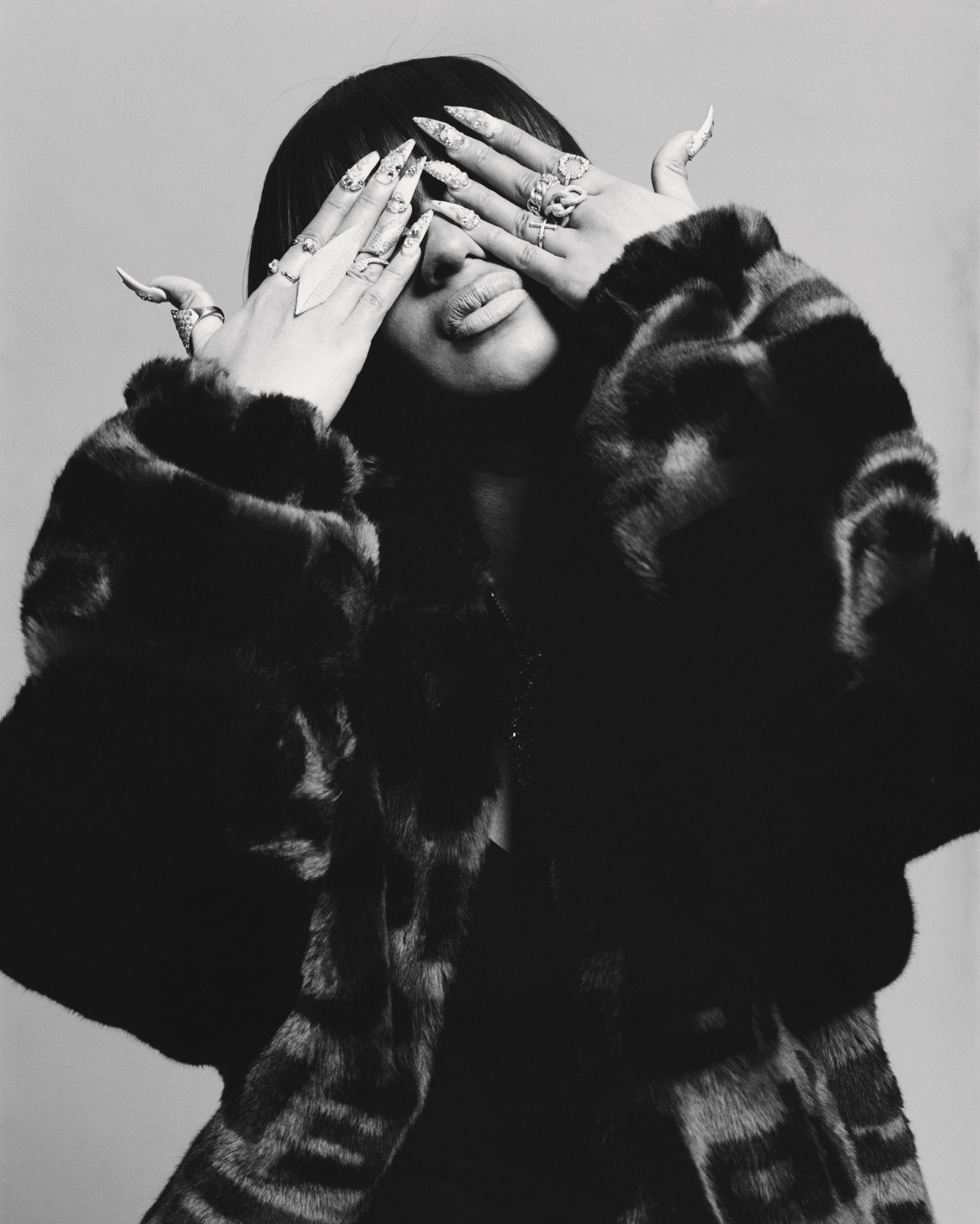
The focus on Cardi B is always on the big ‘n’ bawsy tracks like Bodak Yellow, Lick, and Bartier Cardi, but her 2017 mixtapes, Gangsta Bitch Volumes 1 & 2 revealed a more complex character, one that could rap about prescription drug addiction, loneliness, poverty, desire. It makes the prospect of her debut album proper, due some time this year, incredibly exciting. Combined with her empowering, hilarious, outrageous Instagrams, Cardi has created her own cult — one that is now millions strong. She’s put behind her poverty and stripping. The dark days of gangs, hustling and just-about-surviving are over. Hip-hop, it seems, has saved her, although this is an idea that she quickly dismisses. The only thing that saved Cardi B was Cardi B. “My personality saved me,” she insists. “My personality was what got people watching me. I didn’t even want to be a rapper because I didn’t have no management, no money and I didn’t want to waste my time. I wasn’t even thinking about dreams. It’s hard to think about fulfilling your dream when you got so much responsibility. Your responsibilities come first. So I always had a realistic goal. I have so many friends that have been rapping their whole life and they never went nowhere, so what made me think that I could do it?”
But she did do it. “Yep, I did it. Look at that, I did it.” And now she’s Cardi B, Grammy-nominated, award-winning, social media queen. Finesse, her recent collaboration with Bruno Mars, is helping to take Cardi from the hallowed halls of hip-hop infamy to the big, bright, unrelenting pop landscape. She’s becoming inescapable, unstoppable, unbeatable. And she’s ready for it. There really is something about Cardi. “There’s only one me and I leave my signature everywhere I go,” she grins, getting ready to leave the drafty dressing room for her swanky hotel in the West End. “It’s either my personality or my farts, but I leave my signature.”
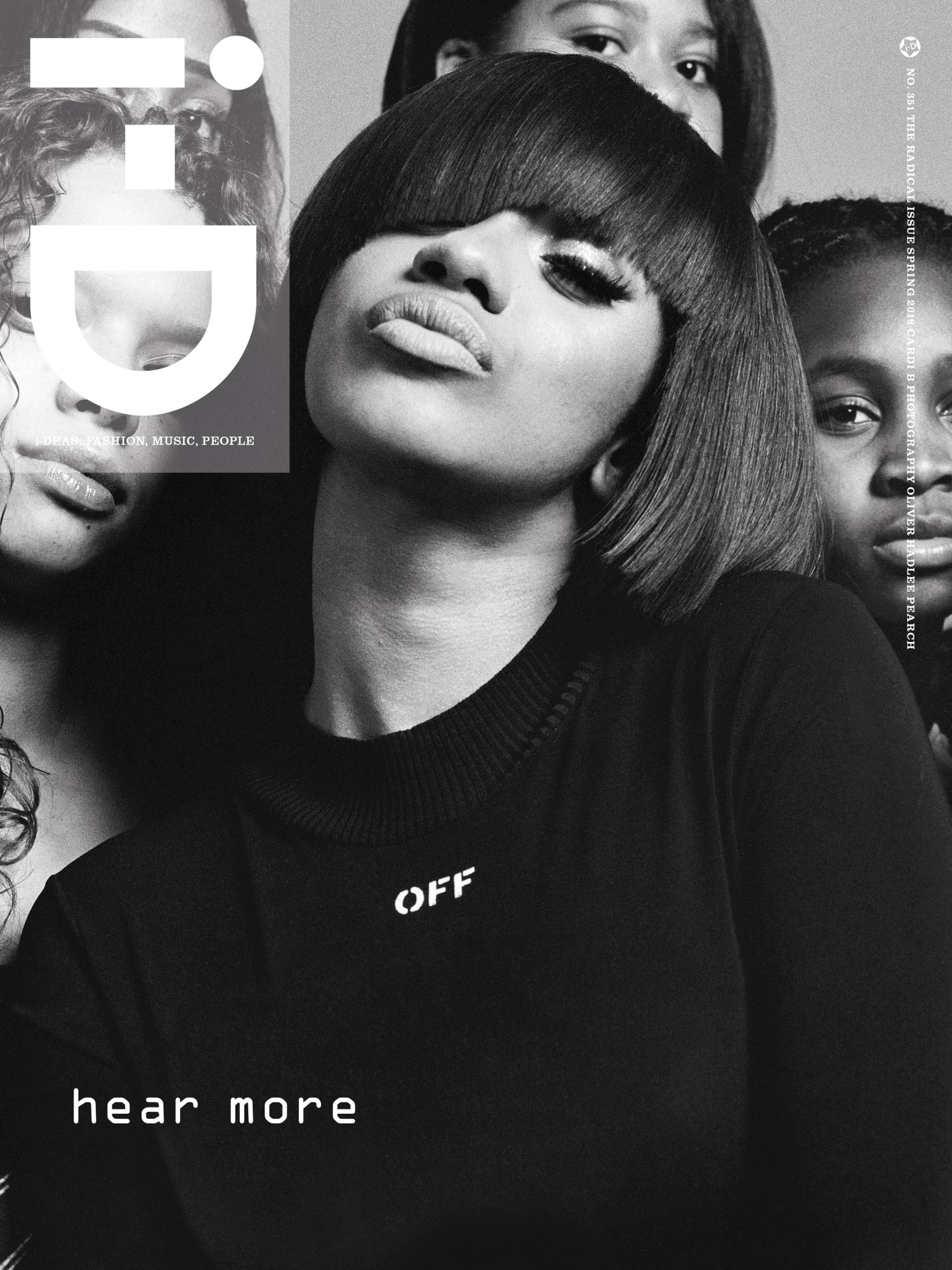
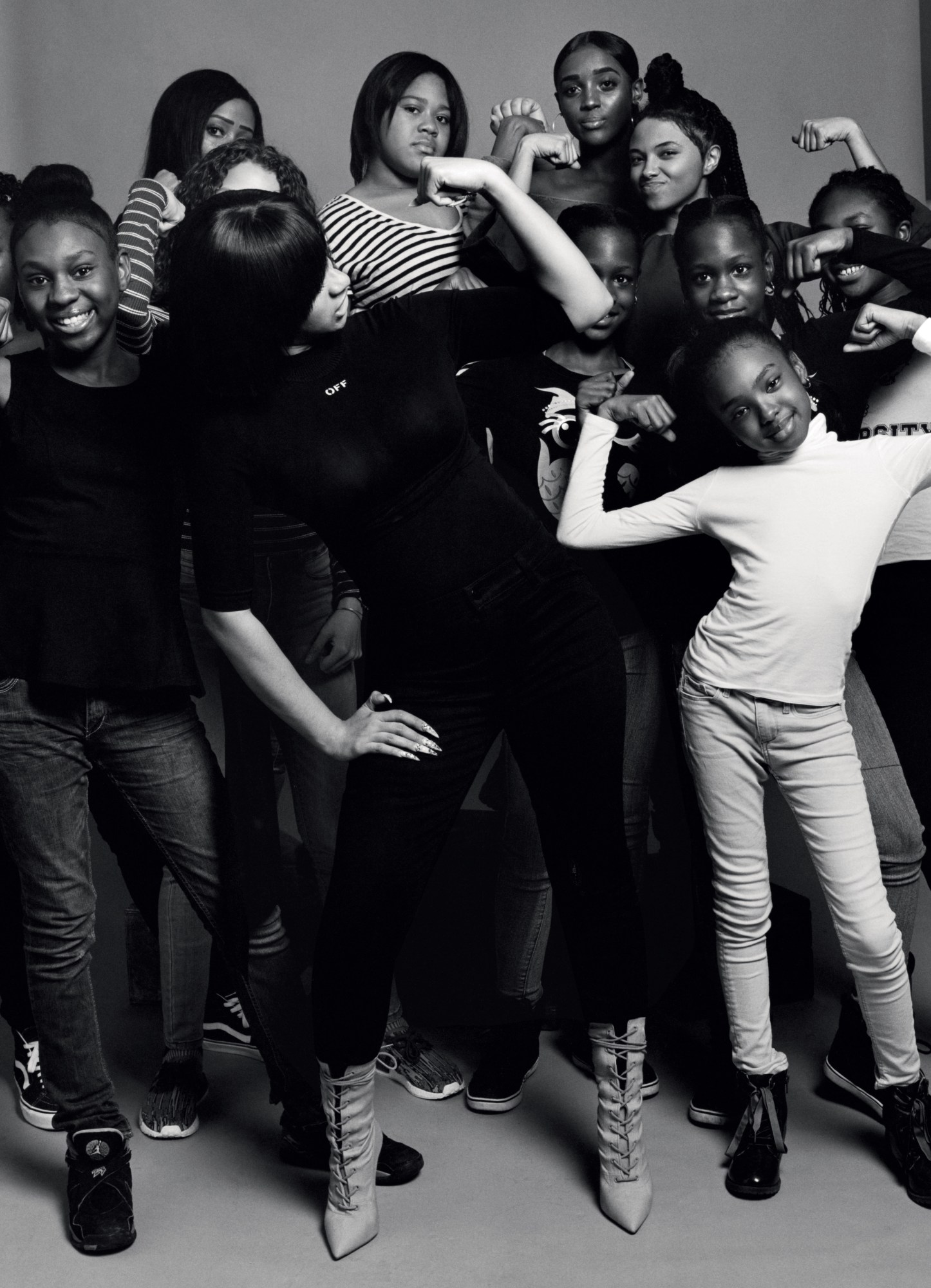
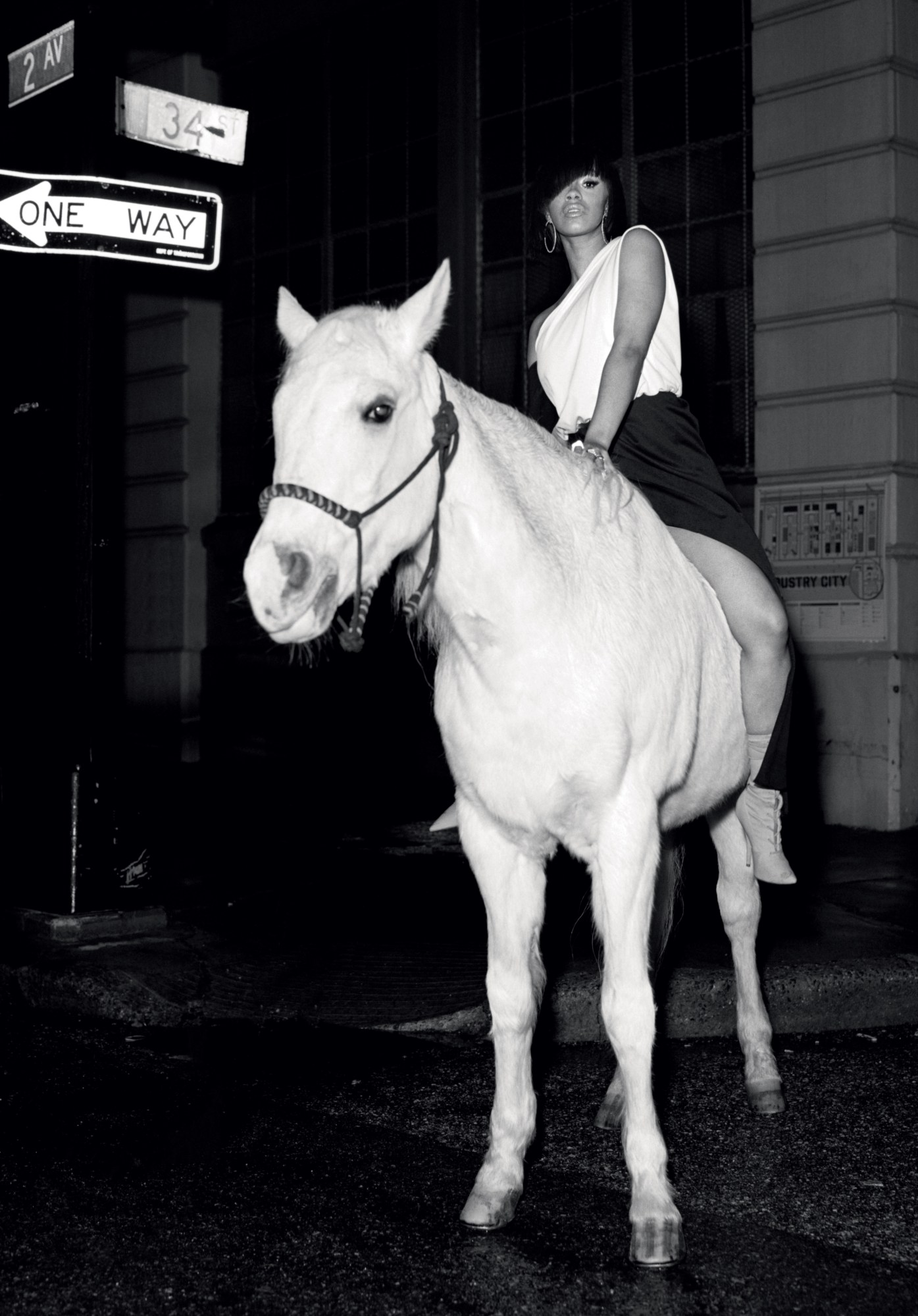
Credits
Text Hattie Collins
Photography Oliver Hadlee Pearch
Styling Carlos Nazario
Hair Jawara at Bryant Artists using John Masters Organics
Make-up Erika La’Pearl
Set design Philipp Haemmerle Inc
Set design lead Ryan Stegner
On-site artist Juan Heredia
Photography assistance Mitchell Stafford, Eduardo Silva and Matt Baffa
Styling assistance Diana Douglas and Kenny P. Paul
Hair assistance Kashima Parris and Karla Serrano
Production Caroline Ramsauer and Jennifer Pio
Production assistance Andrew Chapman and Michael White
Cast Alexis Trainer. Celeste Saurez. Laurielle Smith. Jada Taylor. Taylor Power. Stephenie Jimenez. Shaniya Coleman. Shanell Coleman. Addyson Hassanali. Jala Norman. Taliyah Jones. Eslee Ryan. Linaishja Johnson. Aniyah Wilson. Casting Sydney Bowen Studio.

